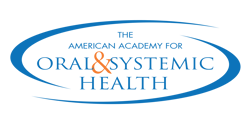Surviving Oral and Mouth Cancer: Oral-Systemic Considerations and Post-Treatment Strategies for Long-Term Health
Introduction
Oral and oropharyngeal cancers—affecting the lips, tongue, mouth floor, hard and soft palate, and throat—remain a significant global health burden, with over 54,000 new cases diagnosed annually in the United States and approximately 11,000 deaths each year (American Cancer Society, 2024). Thanks to advances in early detection and multimodal therapies, the five-year survival rate has steadily improved to 66% (SEER, 2023). As more patients survive oral cancer, the focus of care is shifting from acute treatment to long-term survivorship and systemic wellness. Survivors often face persistent challenges including nutritional deficiencies, oral microbiome disruption, chronic inflammation, and psychological impacts. National Cancer Survivor Day presents a timely opportunity to reflect on survival and the quality of post-treatment life. This article explores the oral-systemic health considerations critical to survivorship and advocates for interdisciplinary collaboration to support patients in achieving not just remission, but vibrant whole-body health.
The Oral-Systemic Burden of Surviving Oral Cancer
1. Microbiome Dysbiosis and Immune Suppression
Radiation, chemotherapy, and surgical interventions significantly alter the oral microbiome, often leading to a persistent dysbiosis marked by an overrepresentation of pathogenic species such as Candida albicans, Porphyromonas gingivalis, and Fusobacterium nucleatum (Zhao et al., 2020). These microbes are not only implicated in local inflammation and delayed mucosal healing but also in systemic inflammatory processes that can exacerbate cardiovascular and metabolic conditions (Schmidt et al., 2018).
2. Chronic Inflammation and Systemic Risk
Post-radiation mucositis, xerostomia, and tissue fibrosis create a chronic pro-inflammatory state in the oral cavity. This inflammatory burden may influence systemic markers such as C-reactive protein (CRP) and interleukin-6 (IL-6), which are associated with a higher risk of cardiovascular disease and metabolic syndrome (Lockhart et al., 2012). Persistent low-grade inflammation in cancer survivors has also been linked to fatigue, cognitive impairment, and depression—symptoms often overlooked in oral cancer follow-up.
3. Nutritional Challenges and Metabolic Disruption
Dysphagia, trismus, altered taste (dysgeusia), and loss of appetite are common post-treatment symptoms that compromise dietary intake. Survivors often experience unintentional weight loss or malnutrition, which weakens immune function and impairs wound healing (Langius et al., 2013). Conversely, others may compensate with a high-carbohydrate, low-protein diet due to ease of swallowing, increasing risk for insulin resistance and obesity-related disorders.
4. Psychosocial Health and Quality of Life
The psychological toll of oral cancer, particularly facial disfigurement, speech impairment, and social isolation, impacts mental health and systemic stress responses (Rogers et al., 2015). Elevated cortisol and autonomic dysfunction from chronic psychological stress may perpetuate immune suppression and increase vulnerability to other chronic diseases.
Oral-Systemic Health Strategies for Survivors
1. Integrative Survivorship Clinics
Survivorship care should include collaboration between oncology, dental medicine, nutrition, and mental health professionals. Oral medicine specialists can monitor for recurrence and manage mucosal changes, while systemic assessments can help track inflammation, glycemic control, and cardiovascular health. Incorporating oral-systemic health into survivorship plans ensures a more comprehensive approach.
2. Rebuilding the Oral Microbiome
Probiotic and prebiotic therapies targeting oral flora are emerging as supportive tools. Clinical trials suggest that Lactobacillus reuteri and Streptococcus salivarius can help reestablish balance and reduce oral pathogens (Sullivan et al., 2022). Salivary diagnostics may also help monitor microbial and inflammatory shifts post-treatment.
3. Anti-Inflammatory Nutritional Support
Dietary counseling focused on anti-inflammatory foods rich in omega-3 fatty acids, antioxidants, and lean proteins supports both oral and systemic recovery. Enteral nutrition plans or supplements may be necessary in severe dysphagia cases. Vitamin D and zinc have shown promise in tissue regeneration and immune modulation (Chirumbolo et al., 2019).
4. Mental Health and Resilience
Routine screening for depression, anxiety, and PTSD should be part of follow-up care. Mindfulness-based stress reduction (MBSR), peer support groups, and speech therapy interventions have demonstrated improved quality of life and physiological stress markers in head and neck cancer survivors (Carlson et al., 2017).
Conclusion
Surviving oral and mouth cancer is a profound triumph, but it initiates a new journey requiring ongoing systemic and oral health support. As we honor National Cancer Survivor Day, the dental and medical communities must strengthen collaboration to provide integrative care that addresses the complex needs of survivors. By prioritizing microbiome health, nutritional stability, inflammation reduction, and psychosocial well-being, we can help survivors not just live—but thrive.
References
- American Cancer Society. (2024). Cancer Facts & Figures 2024. https://www.cancer.org
- Surveillance, Epidemiology, and End Results (SEER) Program. (2023). SEER Cancer Statistics Review. https://seer.cancer.gov
- Zhao, H., Chu, M., Huang, Z., Yang, X., Ran, S., Hu, B., & Zhang, C. (2020). Variations in oral microbiota associated with oral cancer. Scientific Reports, 10(1), 1–11. https://doi.org/10.1038/s41598-017-11779-9
- Schmidt, B. L., Kuczynski, J., Bhattacharya, A., et al. (2018). Changes in abundance of oral microbiota associated with oral cancer. PLoS ONE, 13(6):e0199364. https://doi.org/10.1371/journal.pone.0098741
- Lockhart, P. B., Bolger, A. F., Papapanou, P. N., et al. (2012). Periodontal disease and atherosclerotic vascular disease: Does the evidence support an independent association? Circulation, 125(20), 2520–2544. https://doi.org/10.1161/CIR.0b013e31825719f3
- Langius, J. A. E., Zandbergen, M. C., Eerenstein, S. E. J., et al. (2013). Effect of nutritional interventions on nutritional status, quality of life and mortality in patients with head and neck cancer receiving radiotherapy: a systematic review. Clinical Nutrition, 32(5), 671–678. https://doi.org/10.1016/j.clnu.2013.06.012
- Rogers, S. N., Ahad, S. A., & Murphy, A. P. (2015). A structured review and theme analysis of papers published on 'quality of life' in head and neck cancer: 2000–2005. Oral Oncology, 43(9), 843–868. https://doi.org/10.1016/j.oraloncology.2007.02.006
- Sullivan, A., Rautava, J., & Collado, M. C. (2022). Probiotics for oral health: myths and facts. Trends in Microbiology, 30(4), 288–297.
- Chirumbolo, S., Bjørklund, G., Lysiuk, R., et al. (2019). Role of vitamin D in the immune system and inflammatory processes. Journal of Inflammation Research, 12, 11–18. https://doi.org/10.1016/j.clinthera.2017.03.021
- Carlson, L. E., Doll, R., Stephen, J., et al. (2017). Randomized controlled trial of mindfulness-based cancer recovery versus supportive expressive group therapy for distressed survivors of breast cancer. Journal of Clinical Oncology, 31(25), 3119–3126.
Oral Cancer and Autoimmune Disorders
